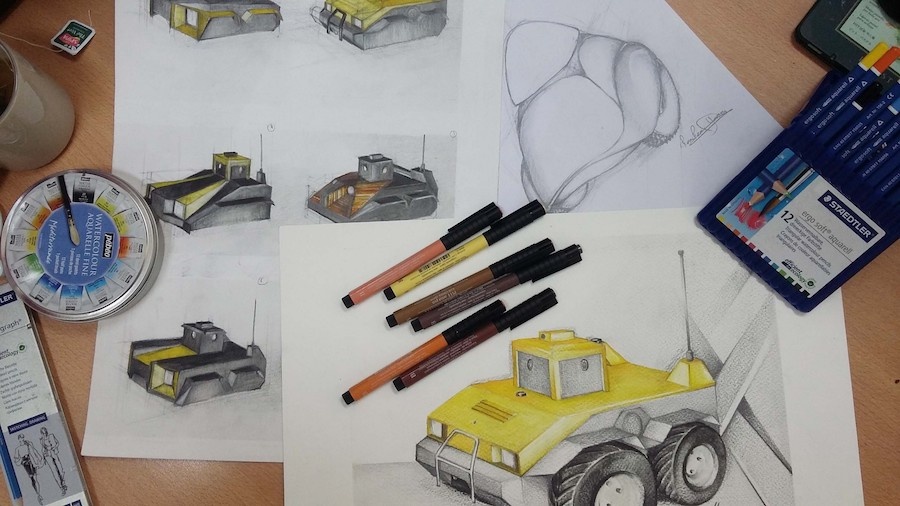Tunisia startup makes robots, not human substitutes

When Anis Sahbani left his job as a university lecturer in France to start a robot-making startup in Tunisia, half of his friends thought he was crazy and the other half thought he was making food processors.
But at 40 years old, Sabahni was ready to give up his life in research to build Enova Robotics.
“During my research, I read a lot about the ongoing debates on the compatibility between robots and humans and my goal was to create robots that could help or assist human beings, not replace them,” he said.
So in 2014 he began putting his ideas into practice.

A long run to create a startup
With five financial partners and a fund of 50,000 euros (US$53,000), he chose to start in his home country because it was cheaper than France. But he did not expect the administrative difficulties that would follow his decision.
“I created the company and rented an office and then, for more than six months, I could not start anything because either one paper was missing, or the bank was blocking, or one ministry did not agree with another ministry. It could have been a total flop for my company if I had not had the money to go on,” he said.
In Tunisia, entrepreneurs often face bureaucratic hurdles. But for Sabahni, who had left the country to pursue a thesis on artificial intelligence in his twenties, this element of the business world was new and quite a life lesson. “I learnt a lot as an entrepreneur and now that it is working, I don’t regret it.”
Now his office is in an incubator of tech entrepreneurs in Sousse, a seaside city near Tunis, and 15 employees.
Robots for regular people
The first robot to be built was called Ogy. It’s designed to help people with daily tasks in their homes such as reminding you to take your medication. Born two months after the launch of the company, and looks like the sphero robot in Star Wars. It will be launched as a product this year.

“I like the idea of robots being our friends,” he said. “I am very invested in the ongoing [discussion] about robots and humankind. For instance, our company chose to not create robots who have the appearance of a human being.”
The only exception he made was with the new model of Ogy, which is for a Japanese market and looks like a cat. “The Japanese audience is more robot friendly and they have a whole culture as a background to welcome new prototypes.”
Next up was Mini Lab, a robot designed for professors to teach the basis of robotics and artificial intelligence directly through a robot instead of a computer; Pearlguard to monitor industrial sites; and E Touch Boot to assist old people with tasks at home, such as reminders to take medication.
Sabahni has sold 30 Mini Lab units to universities and research labs in Europe.
“Our customers today [for the Pearlguard robot] are mainly security companies. The first robot was bought by Panthera Group, and we signed a contract to provide 30 units for the next two years” Sabahni said.
Tunisia does not have a market for robots, so Enova’s 300,000 euros (US$318,000) profit last year came from the US and Europe.
Raja Chatila, a professor in robotics and the director of the Institute of Intelligent Systems and Robotics in France, told Wamda there were several reasons why no country in MENA had yet developed a robotics industry.
“First, it is a recent growing market. Even in Europe and in the United States, it is only twenty years old. Then for the industrial robotics, you need a lot of money to develop an industry and some countries are already leaders on this such as Japan.”
Feature image via Enova Robotics.


